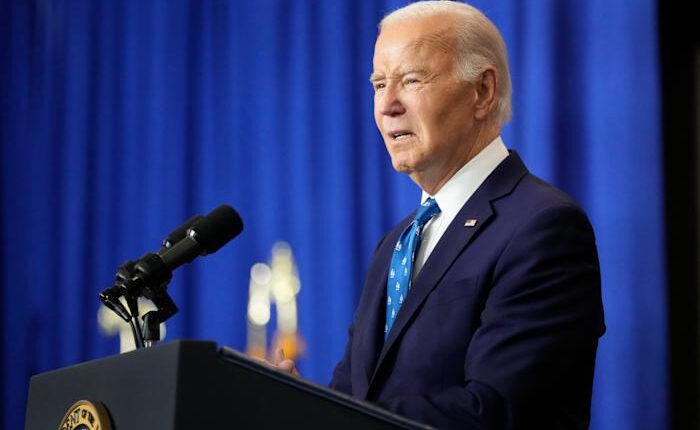
WASHINGTON – President Joe Biden made the decision to reject a proposal that aimed to include 66 federal district judgeships. He mentioned that the House’s swift action raised crucial unresolved questions about these lifelong positions.
The proposed legislation intended to gradually introduce the new trial court judgeships over a span of more than ten years. This timeline would have allowed three presidential administrations and six Congresses to appoint the newly created judges, ensuring a fair distribution of the judicial positions without favoring any particular political party.
Although the Democratic-controlled Senate unanimously approved the bill in August, the Republican-led House delayed the process and brought it forward only after Republican Donald Trump secured a second term in November. This timing introduced an element of political maneuvering to the situation, prompting President Biden to take this action.
The White House had said at the time that Biden would veto the bill.
“The House of Representative’s hurried action fails to resolve key questions in the legislation, especially regarding how the new judgeships are allocated, and neither the House of Representatives nor the Senate explored fully how the work of senior status judges and magistrate judges affects the need for new judgeships,” the president said in a statement.
“The efficient and effective administration of justice requires that these questions about need and allocation be further studied and answered before we create permanent judgeships for life-tenured judges,” Biden said.
He said the bill would also have created new judgeships in states where senators have not filled existing judicial vacancies and that those efforts “suggest that concerns about judicial economy and caseload are not the true motivating force behind passage of this bill now.
“Therefore, I am vetoing this bill,” Biden said, essentially dooming the legislation for the current Congress. Overturning Biden’s veto would require a two-thirds majority in both the House and Senate, and the House vote fell well short of that margin.
Organizations representing judges and attorneys had urged Congress to vote for the bill. They argued that the lack of new federal judgeships had contributed to profound delays in the resolution of cases and serious concerns about access to justice.
Sen. Todd Young, R-Ind., reacted swiftly, calling the veto a “misguided decision” and “another example of why Americans are counting down the days until President Biden leaves the White House.” He alluded to a full pardon that Biden recently granted his son Hunter on federal gun and tax charges.
“The President is more enthusiastic about using his office to provide relief to his family members who received due process than he is about giving relief to the millions of regular Americans who are waiting years for their due process,” Young said. “Biden’s legacy will be ‘pardons for me, no justice for thee.’”
—–
Associated Press writer Kevin Freking contributed to this report.
Copyright 2024 The Associated Press. All rights reserved. This material may not be published, broadcast, rewritten or redistributed without permission.

















